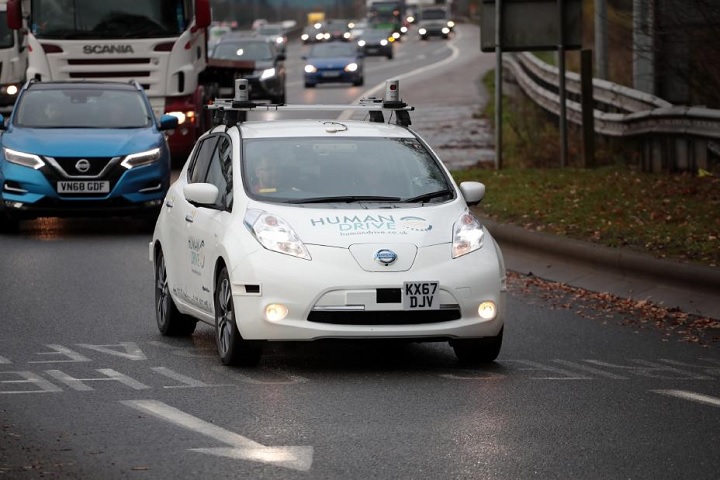
A Nissan Leaf was used to complete the 230 mile journey
A British-based research project has completed the UK’s ‘longest and most complex’ autonomous car journey.
The 230 mile journey – from Bedfordshire to Sunderland – was the culmination of the 30-month, Government-backed HumanDrive project.
One of the key aspects of the project, led by Nissan, was to develop an advanced, autonomous vehicle control system which can tackle challenges specific to UK roads.
The journey involved a range of driving scenarios, including country lanes with no or minimal road markings, junctions, roundabouts and motorways.
The autonomous technology activated along the route to change lanes, merge and stop and start when necessary.
Bob Bateman, project manager for Nissan Technical Centre, said: “The HumanDrive project allowed us to develop an autonomous vehicle that can tackle challenges encountered on UK roads that are unique to this part of the world.”
Nadhim Zahawi, business minister, said: “Safely completing the longest autonomous drive in Britain is an incredible achievement for Nissan and the HumanDrive consortium, and a huge step towards the rollout of driverless cars on UK streets.
“This project is a shining example of how the automotive industry, working with government, can drive forward technology to benefit people’s mobility – while helping to slash carbon emissions.”
Congratulations on this achievement. Noteworthy that it encountered a range of road conditions.
Researchers have shown that it would take many tens of millions of miles to demonstrate empirical evidence of safety using normal statistical models to compare with human driver outcomes. This is something of a dilemma – do we wait or do we use other evidence ?
Peter Whitfield, Liverpool
--1